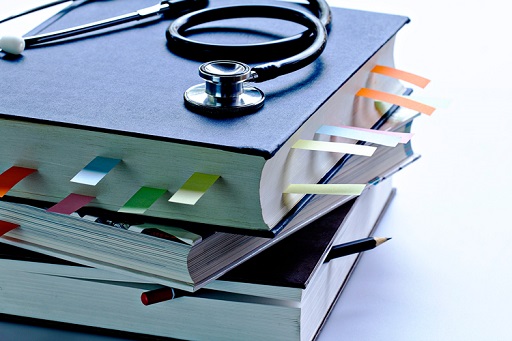Potassium::
It is the main cation of intracellular fluid it is found in almost all food stuffs Daily requirement is about 4g
potassium performs many functions ::
(1) It maintains intracellular osmotic pressure
(2) It maintains pH of the blood
(3) Participates in CO2 carriage through chloride shift
(4) It inhibits cardiac contraction and prolongs relaxation
(5) It inhibits muscular contraction in general
(6) The excitability of muscles and nerves is also related to potassium
(7) Potassium also hastens ciliary movement
Deficiency of potassium may affect heart and skeletal muscles Bones may become fragile Sterility may develop due to potassium deficiency
Iodine::
The primary function of iodine (i) in the body is provide a substrate for the synthesis of the thyroid hormones thyroxine and triiodothyronine which are crucial for normal growth and development The thyroid gland which weighs 15 to 20 g contains 80% of the body s iodine pool and is about 15 mg in adults iodide the ionic form of iodine is rapidly absorbed from the GI tract and distributed to extracellular water Fasting plasma concentrations of iodide are about 1 ug/L (7.88 nmol/L) in adults about 80% of the iodide ingested and absorbed is trapped by the thyroid gland through an ATP dependent iodide pump iodide occurs in soil and seawater and is oxidized by sunlight to iodide which is vaporized into the air The iodine concentration is 50 to 60 ug/L (394 to 473 nmol/L) in seawater and 0.7ug/m3(5.51 nmol/L ) in the air Some of this iodines returned to the soil by rain but much is lost in the atmosphere these events account for the continued depletion of iodine in soil its lack of capture by plants and continuing iodine deficiency in humans particularly at higher altitudes in countries where salt is not fortified with iodine in iodine deficient areas the iodine concentration in drinking water is <2ug/L(<15.8 nmol/L whereas in areas close to the sea the drinking water contains 4 to 10 ug/L (31.5 to 78.8 nmol/L ) The usual intake of iodine healthy persons is 100 to 200 ug /day mostly from iodized salt (70 ug/g)
Deficiency::
Iodine deficiency results when iodine intake is <20ug/day in moderate iodine deficiency the thyroid gland under the influence of thyroid stimulating hormone hypertorphies to concentrate iodine in itself resulting in a colloid goiter Most of these cases remain euthyroid
Severe iodine deficiency may result in endemic myxedema among adults and in endemic cretinism among infants Several metabolic disturbances in thyroid hormone synthesis can cause both adult and infantile hypothyroidism but world wide endemic iodine deficiency is still a major cause of hypothyroidism Severe maternal iodine deficiency retards fetal growth and brain development Endemic cretinism may occur in one of two forms (neurologic or myxedematous ) depending on the interplay of iodine deficiency and genetics
Infants with iodine deficiency are given L- thyroxine (3 ug/kg/day) for a week plus 50 ug iodide to quickly to restore a euthyroid state Iodide supplementation is continued plasma thyroid stimulating hormone levels are monitored untill they are in the normal range Deficient adults are given iodide at a dose of 1500 ug /day -about 10 times the recommended daily allowance for several weeks to restore the iodine content of the depleted gland and permit thyroxine synthesis


0 Comments